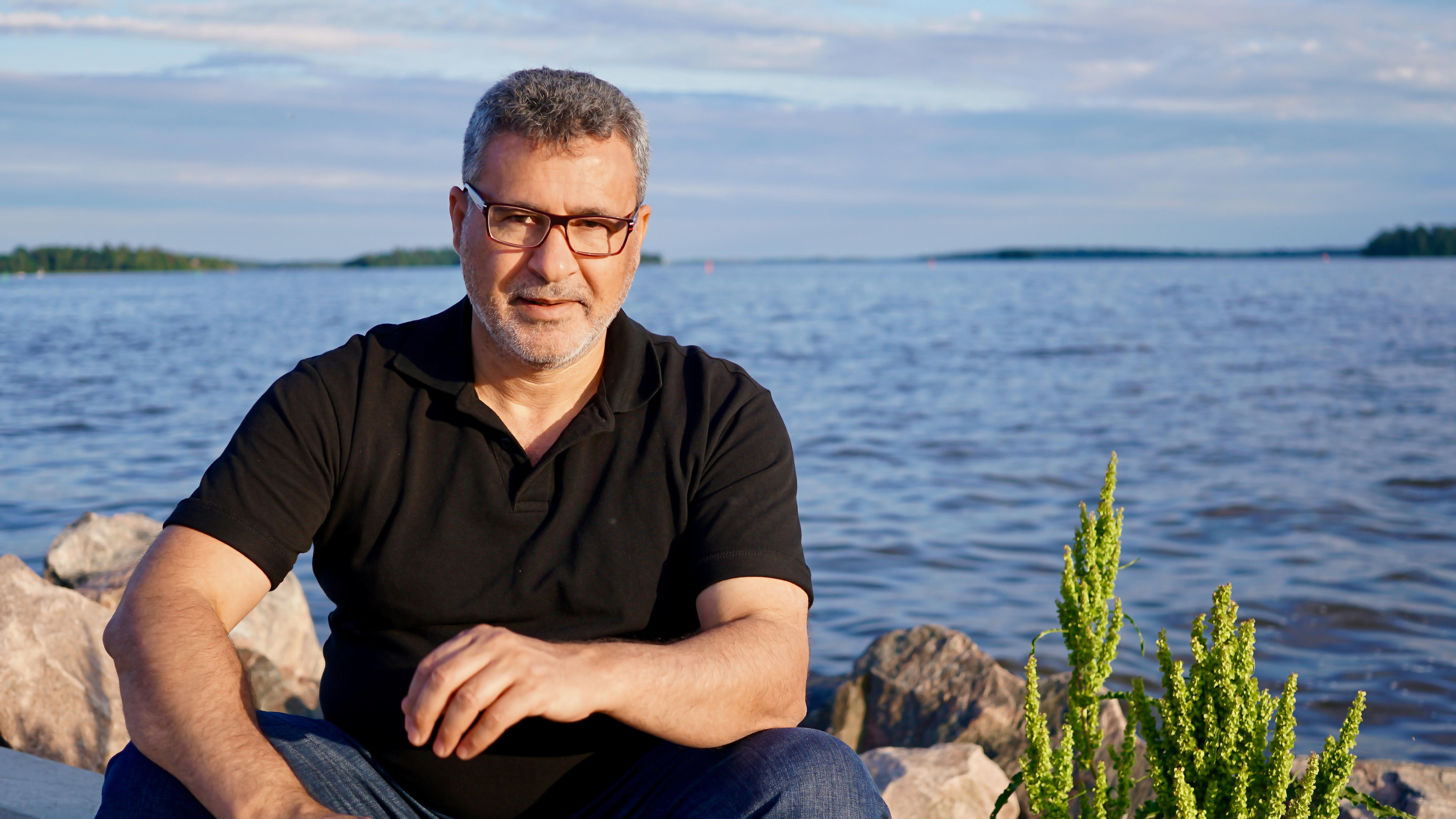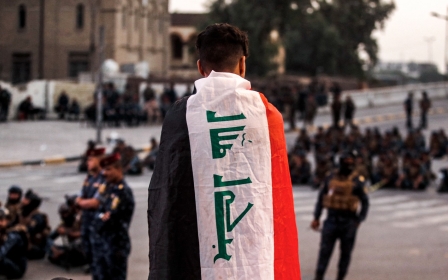Iraq war: I was tortured at Abu Ghraib. After 20 years, I'm still seeking justice

I was working as a journalist for Al Jazeera when I was arrested in Baghdad by US forces in November 2003.
In the months prior, I had been travelling throughout Iraq, documenting the suffering I saw following the US invasion of my country.
The devastating impact of the war on Iraqi civilians was immediate and large-scale. Repeatedly, a family’s property would be destroyed not because they did anything wrong but because American soldiers would operate from a place of fear and vengeance - a shoot first and ask no questions later approach.
To the US forces, I was an annoying journalist who needed to be disciplined and so prison was the best solution
For example, I covered a story in which a farmer was killed on his land just because US forces mistakenly thought he was armed. In another instance, they destroyed a family’s house just because a single shot came from it.
Stay informed with MEE's newsletters
Sign up to get the latest alerts, insights and analysis, starting with Turkey Unpacked
US forces also practised collective punishment, responding to even minor resistance with disproportionate force. In the same village I visited, I recall people being arbitrarily arrested because armed groups attacked US forces nearby – not because the villagers themselves did anything against them.
As Iraqis, we had no power to stop these human rights violations carried out mercilessly against the entire population, whether old or young, in an endless manner by the most powerful country in the world that claimed to bring "democracy" as our liberator.
But what we were able to do - what I did personally as a journalist - was speak out and report what was happening. The Americans could not stop us from telling the truth.
My arrest, therefore, did not come as a surprise to me.
To the US forces, I was an annoying journalist who needed to be disciplined and so prison was the best solution. Without any charges ever brought against me, I was imprisoned in the notorious Abu Ghraib prison.
Intentional abuse
At first, I thought the horrendous treatment of prisoners by Americans that I heard about was the result of individual mistakes made by some untrained and unscrupulous soldiers. Once I arrived at Abu Ghraib prison, however, it became clear to me that the abuse was intentional - a structured and organised policy carried out by those operating the prison.
I don't want to tell the whole story of the torture and humiliation I endured since it's known to everyone by now, 20 years later. The photos from Abu Ghraib, seen around the world, have forever captured the utter lack of humanity in our captors.
I'll just say this: I was tortured. I was also a witness to the torture of others, and others witnessed what was done to me. I can recall the methods of torture and other cruel and inhumane abuse the prisoners and I suffered. The sound of their screams still haunts me.
When I was released from prison nearly two months later, I was in a complete state of shock. Even after all of this time, the physical and psychological trauma of that experience continues to be present in my life. Hearing the name "Abu Ghraib" alone is sometimes enough to awaken the living nightmare and flood my mind with the horrific scenes that unfolded before me. I can never escape those memories.
The torture at Abu Ghraib is just one part of the larger damage caused by the US invasion and occupation of Iraq - untold damage that is difficult to put into words.
The situation in my home country has drastically changed. Iraq is no longer a place that enjoys safety, not even to any extent.
The horrors inflicted on Iraqis at Abu Ghraib prison were just the beginning of such widespread abuse. Since then, the number of prisons - where the use of torture is systemic - and prisoners have increased significantly. An estimated 100,000 people were unlawfully detained by US forces and had no means to challenge their imprisonment.
Seeking justice
I find myself asking again and again: what was the reason for this destruction? Why did the US - a country that claims to value human rights and democracy - invade my country and leave behind a legacy of death, torture, displacement, damaged infrastructure, environmental degradation, and sectarian violence?
The US must reckon with what it did, or at least clean up its mess and acknowledge the harm it inflicted on the Iraqi people - but it doesn't appear to be taking those steps.
Despite international condemnation of the torture at Abu Ghraib, the US government did not adequately account for what it did to the thousands of Iraqis it imprisoned there and at other detention centres following mass-rounds ups of civilians who did nothing but try and survive at a time of massive disruption and violence.
Rather, the US sought to suppress the story and scandal by "investigating" a few soldiers and simply moving on. The US must stop and consider its legacy in Iraq, and in the many other countries where it has used or supported military force. One way it can begin to do this is by hearing directly from us - the victims and survivors - by making our names and stories known, and digging deeper into who bears responsibility for the cruelty we faced.
After my detention and torture, I wondered: how could I and other torture survivors get justice? Would that even be possible? In 2008, an opportunity arose for some of us to sue CACI, a private military contractor that was hired by the US government to provide interrogators at Abu Ghraib prison.
Unfortunately, justice in America remains elusive as the case has stagnated in federal court. Fifteen years is a long time to wait for justice and the outcome has been disappointing.
Accountability in our case would be a step in the right direction towards a fuller reckoning of the crimes committed by Americans at Abu Ghraib and the other prisons around Iraq. Hopefully, then there could be efforts to provide redress for other torture victims like me.
To this day, my children ask me for details about what happened at Abu Ghraib but I can’t bring myself to tell them. As immensely painful as it is to share my full story, it pains me more to think about how what was done to me would affect them and I don’t want my children to suffer because of me.
Despite my reluctance to discuss my experience, I recognise the importance of sharing my story and my case with the public - especially in US media outlets. I continue to speak out because I'll never stop seeking justice and telling the truth.
Justice in this case will not just count as a victory for me and my fellow plaintiffs, but will also be a victory for the American legal system and for human rights because it will show that nobody is above the law.
While no one can erase for me the memories and pain of Abu Ghraib, there are some who can try to make it right. We deserve to have our day in court, and when we do, the story of Abu Ghraib will be told by me and other men who lived - and survived - it.
The views expressed in this article belong to the author and do not necessarily reflect the editorial policy of Middle East Eye.
This article is available in French on Middle East Eye French edition.
Middle East Eye delivers independent and unrivalled coverage and analysis of the Middle East, North Africa and beyond. To learn more about republishing this content and the associated fees, please fill out this form. More about MEE can be found here.






